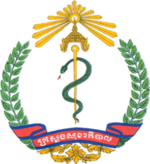Issue Description
Medical and pharmaceutical products actively going through the renewals process are not automatically entitled to receive import licences. Under normal circumstances, a product registration certificate is required in order to obtain an import licence from the Ministry of Health, which they will process within six months. EuroCham members report that this timeline is fair and generally accurate when all of the required documentation has been submitted, though in situations where there is an issue with their application, they perceive a lack of clear communication with the Ministry, which is severely affecting the approval process.
As companies are unable to effectively track their applications, they are unaware of issues that may arise with their submissions and it often takes some time before they are contacted by the Ministry to rectify any concerns. This causes significant delays to the import procedure as the Ministry cannot process the application until the documentation is in order. Once the company has been notified and reconciled any issues, the 6-month renewal processing timeframe restarts, adding considerable delay to the process, and companies are prevented from importing their product during this period.
The Ministry was previously very helpful in finding a solution to this issue, having agreed to consider granting requests for urgent import licences on a case-by-case basis when approached. While we appreciate these efforts, the Ministry stated that they will no longer consider granting such requests, posing a serious risk to all companies within the healthcare sector. Thus, the sector requires a suitable channel for companies to apply for an urgent import licence for medical products, if there have been delays to the process outside their control, and such a mechanism would indeed benefit from a more formalised process.
Impact on business
Delays in product registrations and renewals can prevent important and, in some cases, life-saving medicines and equipment from entering the country. This lowers the quality and safety of healthcare available to Cambodian citizens and residents for two reasons: first, it prevents products from benefiting from the most recent and advanced research and development from reaching Cambodia. Secondly, it creates demand for unregistered and counterfeit products, as uncompliant pharmacies will seek out these products to maintain their inventory as they avoid the registration process entirely. Regulatory hinderances such as this also create significant operational burdens for healthcare companies which could reduce their level of investment and diminish the appeal of the sector.
Recommendation
-
Reinstate a channel for companies to obtain urgent import licences for medical products awaiting renewal or registration by adopting a formal application process with clear guidelines outlining eligibility.
Allowing medical and pharmaceutical companies in Cambodia to have a channel to obtain urgent import licenses for their products can have several positive impacts. Firstly, it can enhance the availability of essential medicines and medical supplies, particularly during emergencies such as natural disasters or pandemics. Secondly, it can improve the efficiency of the supply chain by reducing delays and bureaucratic hurdles. Thirdly, it can encourage more investment in the healthcare sector by creating a more favourable business environment. Lastly, it can lead to better health outcomes for the population, as timely access to medicines and medical supplies is crucial for the successful treatment of illnesses and diseases.
Royal government of Cambodia
Initiative from Eurocham: The issue has been raised by the Healthcare Committee within The White Book edition 2024 in the Recommendation No. 47.

National Counterparts

Ministry of Health

